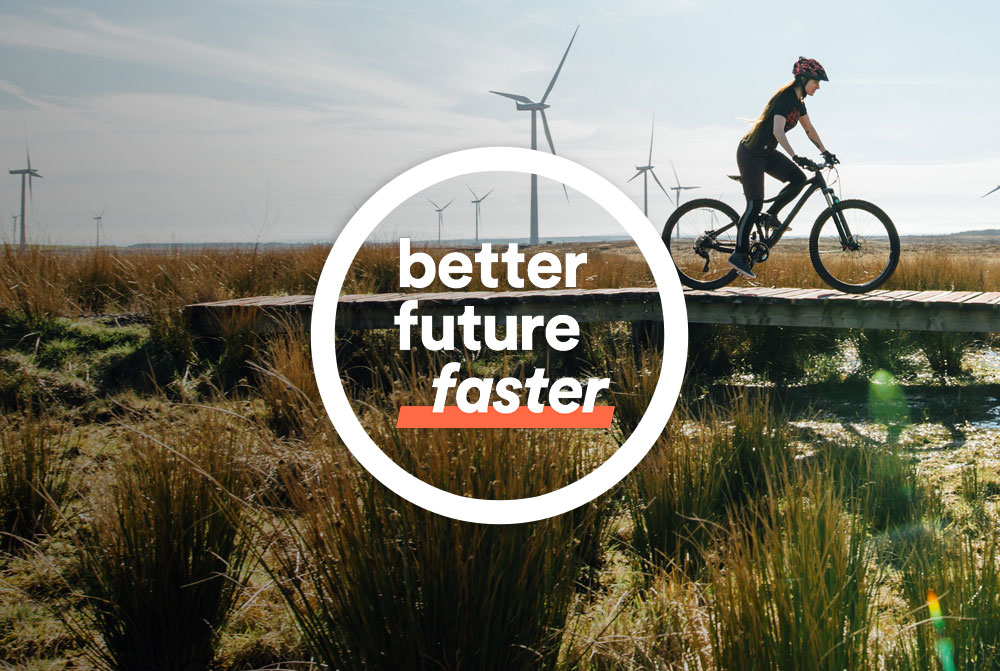Zero-Carbon Transition: April signals of change

As the world grapples with the devastating impacts of the coronavirus, our thoughts are with those affected by the illness and those struggling to carry on despite incredibly challenging conditions – particularly those at the frontline of caring for the sick and vulnerable.
At this difficult time, companies around the world are stepping in to help with the global effort, showing how they can protect lives, act decisively and help curb the contagion. Find out how business is responding to COVID-19 here >.
Companies are also recognising the importance of building greater resilience at this critical time, protecting against growing threats including climate change and helping to steer a renewed pathway to the zero-carbon future.
Here are just some of the signals of change from the month, demonstrating the transition to a resilient, zero-carbon future remains underway. #BuildBackBetter
Zero-Carbon Economy
The ‘European Alliance for Green Recovery’ saw 37 CEOs of Europe’s biggest global companies join ministers from 11 countries, business associations and trade unions to call for a green recovery in Europe. The number of EU nations backing a green post-coronavirus recovery has increased to 17. Chile has increased its Nationally Determined Contribution (NDC) and committed to peaking its greenhouse gas emissions by 2025. Eight investment groups, including BNP Paribas Asset Management, have urged companies to maintain their focus on reducing emissions. A new study finds that keeping global warming to 1.5ºC would cut the cost of climate impacts by $600 trillion and deliver cheaper low-carbon energy. The number of companies committed to science-based targets has reached +870 with new joiners including Ralph Lauren and Chinese semiconductor company Jiangsu Pacific Quartz.
Zero-Carbon Power
Japan Bank for International Cooperation (JBIC) has said it will reject loan requests for new coal projects. Austria and Sweden have shut their last coal-fired power plants, while six more EU countries are expected to follow suit by 2025. The number of companies committed to switching to 100% renewable electricity with RE100 has surpassed 230, the latest joiners are US financial services company Mastercard, US household products company, Coty and British software company Refinitiv. Renewable energy could help power an economic recovery from COVID-19, creating global GDP gains of almost $100 trillion by 2050, according to IRENA. Oil and gas major Royal Dutch Shell has committed to be net-zero carbon by 2050 or sooner. Renewable energy accounted for almost three quarters of total global power capacity additions in 2019, while the total share of renewables reached 34.7%, according to data from IRENA.
Zero-Carbon Transport
As part of its COVID-19 stimulus measures, China will extend subsidies and tax exemptions for new energy vehicles. A group of nine companies committed to The Climate Group’s EV100 initiative have called on the President of the European Commission, Ursula Von der Leyen, to push ahead with 2020 CO2 targets for cars, vans and trucks, despite lobbying attempts for a delay. UK water utility Severn Trent has committed to accelerate the transition to electric vehicles with EV100. Volvo and Daimler have set up a joint venture to develop fuel cell technology for heavy-duty vehicles. Japanese auto component company Sumitomo Electric Industries has committed to set a science-based target, while US trucking company Armada Supply Chain Solutions and Spanish air freight company Logista have had their targets approved.
Zero-Carbon Built Environment & Heavy Industry
Italian construction and engineering company Morfù s.r.l and the largest commercial real estate company in Europe – Unibail-Rodamco-Westfield SE – have both committed to set a science-based target. While US real estate company JLL has had its target approved, along with US real-estate company Boston Properties and Japanese building materials firm Comany Inc. Japanese timber and building materials firm Sumitomo Forestry Group has committed to switching to 100% renewable electricity with RE100.

